Mercedes-Benz 300d W189 3 Liter Inline 6 1963
General description :
1963 Mercedes-Benz 300d Adenauer
s/n 189001-12-002917, eng. no. 189980-12-002202
Blue Gray with Red Leather interior
During the 1950s and early 60s, Mercedes-Benz built the last of thier magnificent handmade opulent touring sedans. With an eye for the growing American market and driving habits matching the expansive geography of modern highways, Mercedes-Benz began work on a top of the line luxury car specifically designed for comfortable high-speed touring. The model line began with the 300 in 1952, ultimately culminating with the d variant in 1957. Officially termed the 300d, this model was colloquially known as the “Adenauer,” aptly named for the first Chancellor of the Federal Republic of Germany, Konrad Adenauer, who famously used six of these prestigious vehicles in his fleet hosting dignitaries, arriving for important national events, and as parade cars within the growing postwar German Republic.
Manufactured from 1957 – 1962, the W189 Type 300D was equal in price to the Rolls Royce Silver Cloud, but was vastly superior in performance and options to both it and the finest offerings from American manufacturers including Cadillac. Indeed, the 300 was one of the earliest cars available with optional VHF mobile telephone and dictation machine. Although it was highly prized for its many luxury features, it was the remarkable performance and engineering that won the hearts of the wealthy elite who bought these cars. Powered by a detuned version of the legendary 300SL engine, the 300d featured Bosch mechanical direct fuel injection with thermostatically controlled oil cooling, copper-lead bearings, and a hardened crankshaft. Other features included optional power steering, air-conditioning, and a three-speed automatic transmission with hill holding design and a “kickdown” feature, which could activate first gear by fully depressing the gas pedal for greater passing or hill climbing. The four-wheel independent suspension and chassis design were also of similar design as the Gullwing, making the 300d a spectacularly handling car of any type during this period, let along the dated and lumbering mechanical specifications of contemporary luxury cars. The 300d was available in both open and closed forms, but its most stunning form is the four door pillarless “full-vision” phaeton, whereby all side glass would smoothly disappear into the doors, and rear quarter glass could be removed, creating a clean and uninterrupted greenhouse. The luxuriously curved front and rear glass were an engineering marvel for the time, delivering expansive visibility even with the side glass in place. A total of 3,077 300d models were produced through the entire production run.
This wonderfully finished 300d is an excellent example of these iconic touring cars. Despite production having ceased in 1962, this car is titled and documented as a 1963 model, accompanied by a signed statement from Mercedes-Benz indicating an October 3, 1963 US delivery date. Given the hand built nature of these cars and the late series chassis number, this example is very likely among the last of this remarkable series built. Delivered to North America in 1963, this car was sold new in Washington State where it was titled and registered that year. The car would later spend some years in Luebeck, Germany, and then return again to the US in 2018. Outfitted from the factory with power steering, sunroof, and AM/FM Becker radio, this 300d has been the subject of selective and careful restoration combined with proper preservation over the years in Europe and in North America. The paint has been metered, showing numbers indicating a significant portion of the car still retains the original paint. Throughout ownership, much effort has been made to preserve what is believed to be the substantially original interior: only the front seats appear to have been retrimmed. This is a tribute not only to the careful ownership, but the superb quality of materials Mercedes-Benz used in their vehicles. In the past five years, this 300d has enjoyed significant mechanical attention including a fully rebuilt rear axle, rebuilt load leveling system, a complete rebuild of the automatic transmission, a new cylinder head and valve job, and a new battery.
Today, the car presents beautifully with majestic presence, truly befitting the ambassadors, dignitaries, and prominent historic figures associated with these cars. The paint is clean and properly detailed with high gloss and quality finishing over the expansive surfaces. There is some evidence of paint touch up on the lower portion of the trunk where the license plate mounts and a minor flaw on the top surfaces of the passenger side front fender. There are a few minor dings and other minor flaws but the car is remarkably preserved and excellent overall condition. Panel fit is representative of the precision factory assembly as are the tight body to fender bead lines and door chrome trim. The stout doors hinge smoothly open and shut very well, retaining very good panel gaps and crisp latching. The hood and trunk also exhibit proper fit and closure with consistent gaps. The chrome throughout is in very good condition, with deep luster and clean, bright reflections, though some areas show light hazing and minor flaws on the bumpers and some trim. All lenses, lighting, and glass are in excellent condition including the windshield. The steel wheels are covered with beautifully polished stainless wheel covers, painted to match the factory DB166 blue gray paintwork.
The interior is a remarkable example of Mercedes-Benz quality showing handsome leather finishes much of which are believed to be original. Unlike many preservation level cars, this interior delivers a fine settled original patina on the rear seat, door armrests, and other sections. The front seats and door panels may have been sympathetically recovered some years ago, but have mellowed to very closely match the original finishes. The factory optional AM/FM Blaupunkt radio remains installed in the dash but a newer Blaupunkt radio and CD player have been discreetly installed in the glove box, and a CD changer mounted in the trunk. The dashboard and surrounding wood is exceptionally well-preserved with very clean instrumentation, high gloss lacquered wood finishes, and newer deep red carpeting. Lowering the side glass and easily removing the rear quarter windows reveals the innovative and expansive full-view phaeton pillarless design.
The engine compartment is in very good condition overall and properly presented with correct parts, correct power steering, fuel-injection, proper factory components, with attention to hard lines, hoses, and electrical as needed. The fuel injection plenum is clean and nicely detailed echoing much of the originality and care exhibited while preserving the 300d series engine. Though not detailed for show, the engine and engine compartment are tidy and properly finished, with an authentic and tidy presentation that reflects the undisturbed and well-loved character of this car. The trunk is clean and tidy, showing mostly original finishes including rubber mat, correct spare tire, and the concealed Blaupunkt CD player.
The car starts easily and idles smoothly, with a chorus of mechanical engine noise that will be familiar to anyone who has spent time around a 300SL, and which accordingly seem quite incongruous in this car. The fuel-injection functions faultlessly, with a even and consistent power delivery that is often missing from 300SLs. Driving manners are stately and composed, delivering diplomatic immunity from any urgency regarding your arrival. The ride engineering, braking, and responsive suspension contribute to a composed driving experience of opulence and grace. Despite the large dimensions of the car, it is easy to maneuver, with light and precise steering, confidence-inspiring brakes, and competent chassis which delivers a good blend of comfort and control. With plenty of luggage space, ample rear seating, and vast phaeton design, one is easily lured into scenic drives. The floor pan, trunk floor, and undercarriage are both solid and straight, showing no evidence of structural compromise, merely typical road use. The car is offered with a large binder of documentation and ownership correspondences, factory build sheets, matching red bag to store the removable rear windows, warning triangle, tool kit, Bilstein jack, original warranty service book, and a reprint of the owner’s manual.
This is an exceptional opportunity to acquire a truly remarkable 300d Adenauer. A marvelously preserved and original example which has clearly been loved its entire life, it is also presented in a fabulous color combination and nicely optioned with sunroof, Becker radio, power steering, and automatic transmission. It is also mechanically-well sorted and its commanding presence and stately manner are irresistible to both occupants and bystanders. It is truly a car with that rare presence and irreproachable Mercedes-Benz quality that transform even the most mundane journey into one to be savored in the most elegant way possible.
1963 Mercedes-Benz 300d W189 3 Liter Inline 6 is listed for sale on ClassicDigest in California by Fantasy Junction for Not priced.
Car Facts
Car type : Car Make : Mercedes-Benz Model : 300d W189 Model Version : 3 Liter Inline 6 Engine size : 0.0 Model Year : 1963 Location : Emeryville Vehicle Registration : Normal
Not priced
Seller Information
Fantasy Junction
Fantasy Junction
+1 510 653 7555
Fantasy Junction
+1 510 653 7555
People who viewed this Mercedes-Benz 300d W189 also viewed similar Mercedes-Benz listed at ClassicDigest
Other cars listed for sale by this dealer
About Mercedes-Benz
In the annals of automotive history, the journey of Mercedes-Benz is a tale that unfolds with the ingenuity of its founding pioneers. In the year 1886, Karl Benz crafted the Benz Patent Motorwagen, a creation that would go down in history as the world's inaugural automobile. Unbeknownst to him, this moment marked the genesis of what would evolve into the most illustrious premium car manufacturer globally. The financial underpinning of this pioneering venture, interestingly, was provided by Karl Benz's wife, Bertha Benz, demonstrating a remarkable partnership that would set the tone for Mercedes-Benz's legacy.A parallel narrative emerged not far away, as Daimler-Motoren-Gesellschaft, founded by Gottlieb Daimler and Wilhelm Maybach, entered the scene. In 1901, they unveiled their automobile under the now-famous moniker "Mercedes," meaning "godsend" in Spanish. This name was bestowed upon the car at the behest of Emil Jellinek's daughter, the distributor for Daimler-Motoren-Gesellschaft. The wheels of innovation were set in motion.
Fast forward to 1926, a pivotal year that witnessed the merger of Daimler with Benz & Cie., culminating in the birth of Daimler-Benz. The amalgamation saw the adoption of "Mercedes-Benz" as the distinguished trademark for their automobiles, fusing the legacies of two visionary entities into one.
Contrary to perceptions of conservatism, the trajectory of Daimler-Benz unfolds as a chronicle of industry firsts. From the introduction of the honeycomb radiator to the float carburetor, and the pioneering implementation of four-wheel brakes in 1924, Daimler-Benz consistently pushed the boundaries of automotive innovation. The diesel-powered Mercedes-Benz 260 D in 1936 marked the inception of diesel engines in passenger cars. The iconic Mercedes-Benz 300SL Gullwing made history as the first car with direct fuel injection, albeit the Gutbrod's tiny 2-stroke engine can claim precedence.
Safety innovations became a hallmark, with Béla Barényi's patented safety cell design in the "Ponton"-models in 1951, featuring front and rear crumple zones. The W116 450SEL 6.9 saw the introduction of the Anti-Lock Brake system (ABS), another pioneering safety feature. From the first production airbags and beyond, the legacy of "firsts" continued to be etched into the fabric of Daimler-Benz.
Over its centennial journey, Mercedes-Benz has not merely produced cars but has sculpted automotive icons. The SSKL, 710 SSK Trossi Roadster, 770K Grosser, 540K Spezial Roadster, 300SL Gullwing, w100 600 Pullman, w111 280SE 3.5 Flachkühler, w113 230SL Pagoda, w109 300 SEL 6.3, and w201 2.3-16 Cosworth stand testament to the brand's commitment to engineering excellence.
The roaring Silver Arrows, or "Silberpfeile," including the W 25, W 125, W154, W165, and W196, created a legacy of dominance on the racetrack. These machines were not merely cars; they were expressions of precision, speed, and an indomitable spirit that left their competitors in the dust.
As Mercedes-Benz marches into the future, it does so not just as an automaker but as a custodian of a legacy, a torchbearer of innovation, and a beacon of automotive excellence. The road ahead is sure to witness the continued fusion of cutting-edge technology, timeless design, and an unwavering commitment to setting new standards in the world of automobiles.
One luminary figure who left an indelible mark was Béla Barényi, often heralded as the "father of passive safety" for his pioneering work in safety engineering. His patented safety cell design, featuring front and rear crumple zones, became a hallmark of Mercedes-Benz's commitment to occupant safety, setting new standards that reverberated throughout the automotive world.
Moving through the chronicles, the collaborative genius of Wilhelm Maybach, alongside Gottlieb Daimler, laid the foundation for Daimler-Motoren-Gesellschaft. Their innovations not only birthed the first Mercedes but established a culture of relentless pursuit of technological excellence that remains integral to Mercedes-Benz's DNA.
In the post-merger era of 1926, Ferdinand Porsche emerged as a prominent figure within Mercedes-Benz. His work on the Mercedes-Benz S-Type, a supercharged race car, garnered acclaim and set the stage for a legacy that extended far beyond the marque. Porsche's impact would later extend to his eponymous company, but his influence at Mercedes-Benz during those formative years was pivotal.
As the 20th century progressed, the legendary Rudolf Uhlenhaut emerged as a key figure. Uhlenhaut, an accomplished engineer and the driving force behind the iconic Silver Arrows, played a crucial role in Mercedes-Benz's dominance in motorsports. His engineering prowess and attention to detail were instrumental in creating some of the most formidable racing cars of the era.
In the latter half of the century, figures like Bruno Sacco, the head of design at Mercedes-Benz from 1975 to 1999, left an indelible imprint on the brand's aesthetic identity. Sacco's design philosophy, characterized by clean lines and timeless elegance, shaped iconic models like the W126 S-Class and the W201 190E, solidifying Mercedes-Benz's reputation for luxury and sophistication.
The narrative would be incomplete without acknowledging the contributions of engineers like Hans Scherenberg, whose leadership in the 1970s ushered in a new era of technological innovation at Mercedes-Benz. Scherenberg's tenure saw the development of groundbreaking technologies, including the Anti-Lock Brake system (ABS) and the introduction of airbags in production cars.
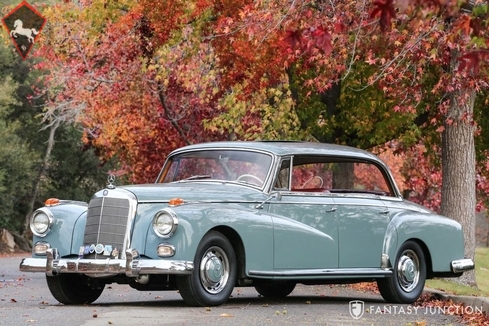















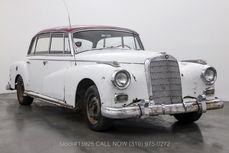
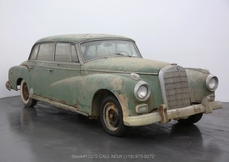
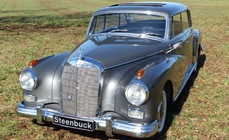
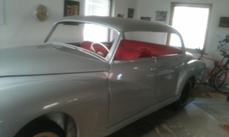
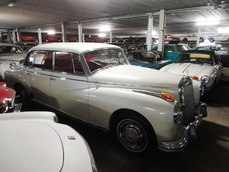
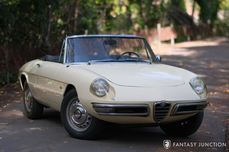
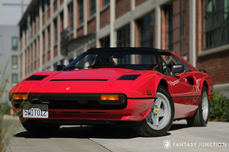
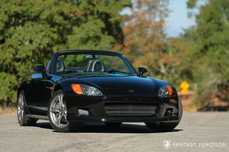
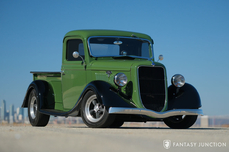
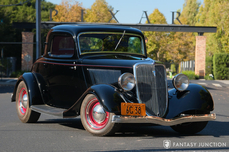

 vars & config
vars & config
 logs & msgs
logs & msgs 39
39 10423.3 KB
10423.3 KB 2260 ms
2260 ms



